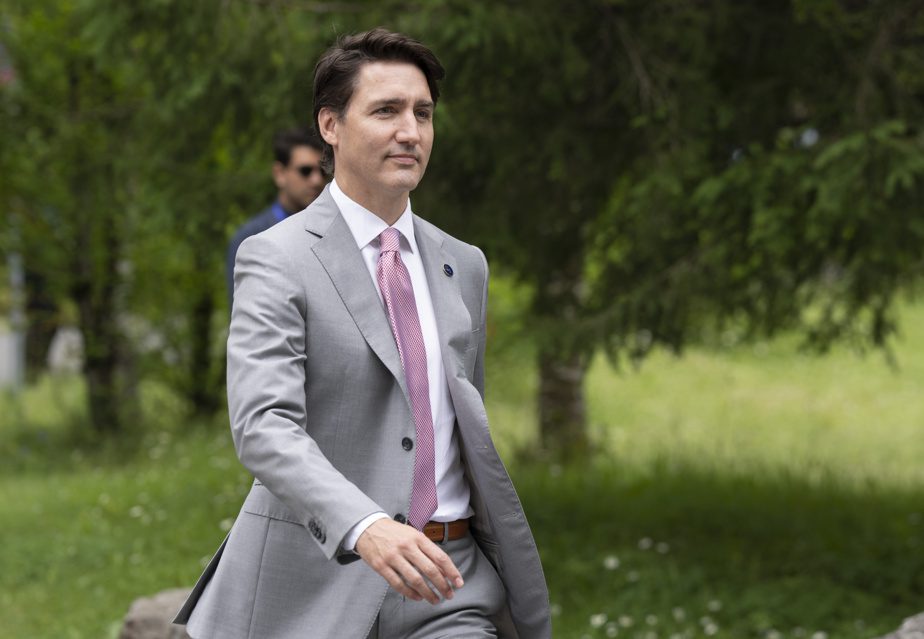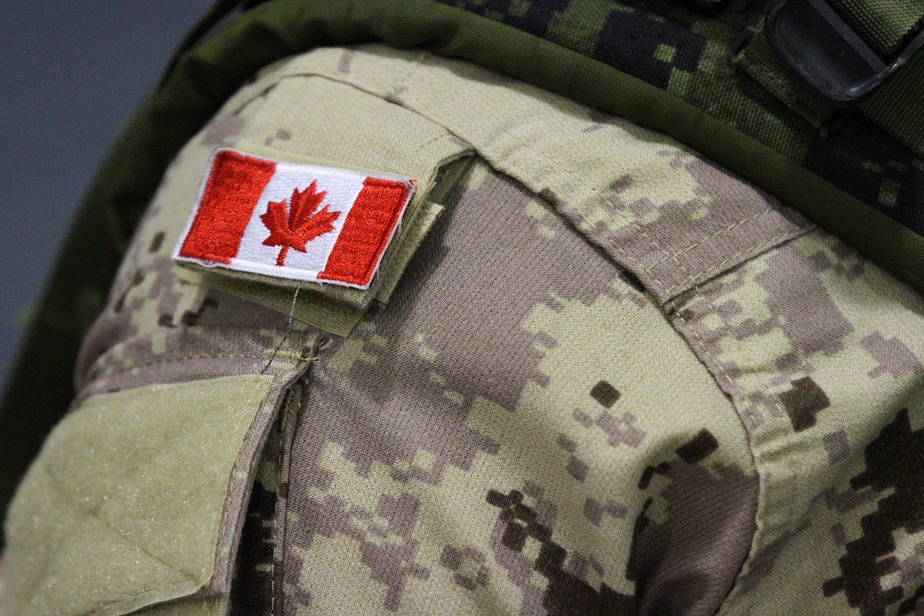(Madrid) Prime Minister Justin Trudeau is expected to face some tough questions this week at the major NATO summit in Madrid as a new report suggests Canada is backing away from its commitment on military spending.
Updated yesterday at 9:47 PM.
The 30 member states of the North Atlantic Treaty Organization (NATO) agreed in 2014 to increase their defense spending to 2% of national GDP. This goal should also come to the fore when the leaders of the military alliance meet from Wednesday in Spain.
On Tuesday evening, Justin Trudeau met his NATO counterparts at a dinner at the Royal Palace in Madrid hosted by King Felipe VI. However, formal exchanges between leaders should begin Wednesday morning.
A new report released Monday by NATO Secretary General Jens Stoltenberg estimates that Canadian defense spending will decline this year as a percentage of GDP. According to NATO, these expenditures will rise to 1.27% this year, compared to 1.32% last year and 1.42% in 2020.

Photo by Paul Chiason, The Canadian Press
Justin Trudeau
The report does not explain this drop, nor whether it takes into account the $8 billion in new military spending promised in the April federal budget, but whose target has not been clearly set by the Liberal government.
Asked about the NATO report at the press conference at the conclusion of the Group of Seven meeting in Germany on Tuesday as he prepared to travel to Madrid, Trudeau said his government had announced several “significant” new investments.
These include $4.9 billion to modernize the North American Air Defense Command (NORAD), as well as plans to purchase new combat aircraft to replace aging CF-18s.
field commitments
The prime minister also said that Canada has repeatedly demonstrated its commitment to NATO by deploying troops and equipment on various missions, including commanding the NATO multinational force in Latvia.
“Canada remains part of NATO’s mission and continues to play an important role in it,” said Mr. Trudeau. We know how important it is to step in and we will continue to do so to make sure the world knows it can count on Canada to advance the cause of democracy, the rule of law, and opportunity for all. »
However, Trudeau has sidestepped the question of whether Canada is ready to deploy more troops to Latvia, as NATO seeks to double the size of its forces in the Baltic states in response to the invasion of Ukraine by Russia.
Latvia’s ambassador in Ottawa told The Canadian Press earlier this week that Canada is talking with allies about strengthening the Canadian Army-led combat group in his country.
The Latvian battle group is one of four battle groups established by NATO in 2017. Germany, the United Kingdom and the United States lead a battle group, respectively, in Lithuania, Estonia and Poland.
Germany and the United Kingdom have said in recent weeks that they are ready to lead larger battle groups in Lithuania and Estonia, but Canada has so far remained silent about its intentions in Latvia.
Nor did Mr. Trudeau indicate on Tuesday whether Canada would be willing to put more military personnel on “high readiness” — Secretary-General Stoltenberg announced on Monday that NATO plans to increase the number of personnel from 40,000 to 300,000 in “high readiness”. level”.
“We’ve worked closely with NATO partners, with the Secretary General of NATO, and especially with Latvia, where Canada leads (the fighting group) and is committed to ensuring that we continue to stand up against Russia,” Trudeau said on Tuesday.
“We, like others, plan to be able to expand quickly,” he added. These are conversations that I very much look forward to having over the next two days” in Madrid.

“Extreme twitteraholic. Passionate travel nerd. Hardcore zombie trailblazer. Web fanatic. Evil bacon geek.”

